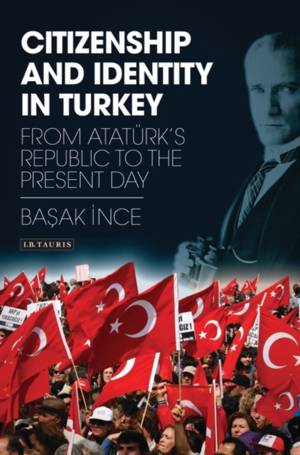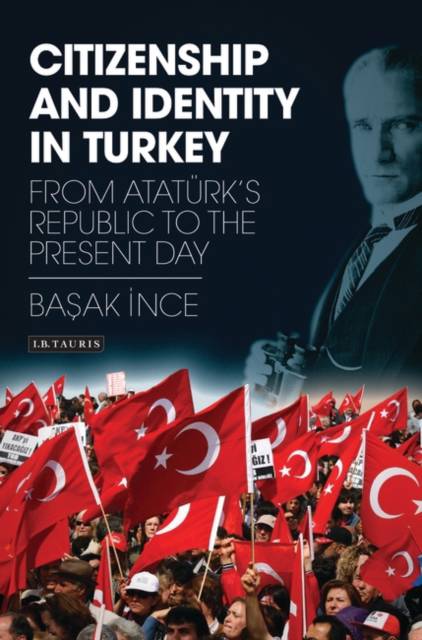
Door een staking bij bpost kan je online bestelling op dit moment iets langer onderweg zijn dan voorzien. Dringend iets nodig? Onze winkels ontvangen jou met open armen!
- Afhalen na 1 uur in een winkel met voorraad
- Gratis thuislevering in België vanaf € 30
- Ruim aanbod met 7 miljoen producten
Door een staking bij bpost kan je online bestelling op dit moment iets langer onderweg zijn dan voorzien. Dringend iets nodig? Onze winkels ontvangen jou met open armen!
- Afhalen na 1 uur in een winkel met voorraad
- Gratis thuislevering in België vanaf € 30
- Ruim aanbod met 7 miljoen producten
Zoeken
€ 296,95
+ 593 punten
Omschrijving
Is Turkish nationalism simply a product of Kemalist propaganda from the early Turkish Republic or an inevitable consequence of a firm and developing 'Turkish' identity? How do the politics of nationalism and identity limit Turkey's progression towards a fuller, more institutionalised democracy? Turkish citizenship is a vital aspect of today's Republic, and yet it has long been defined only through legal framework, neglecting its civil, political, and social implications. Here, Basak Ince seeks to rectify this, examining the identity facets of citizenship, and how this relates to nationalism, democracy and political participation in the modern Turkish republic. By tracing the development of the citizenship from the initial founding of the Republic to the immediate post-World War II period, and from the military interventions of the 1960s, 1970s and 1980s to the present day, she offers in-depth analysis of the interaction of state and society in modern Turkey, which holds wider implications for the study of the Middle East.
Specificaties
Betrokkenen
- Auteur(s):
- Uitgeverij:
Inhoud
- Aantal bladzijden:
- 304
- Taal:
- Engels
- Reeks:
Eigenschappen
- Productcode (EAN):
- 9781780760261
- Verschijningsdatum:
- 26/04/2012
- Uitvoering:
- Hardcover
- Formaat:
- Genaaid
- Afmetingen:
- 140 mm x 216 mm
- Gewicht:
- 498 g

Alleen bij Standaard Boekhandel
+ 593 punten op je klantenkaart van Standaard Boekhandel
Beoordelingen
We publiceren alleen reviews die voldoen aan de voorwaarden voor reviews. Bekijk onze voorwaarden voor reviews.











